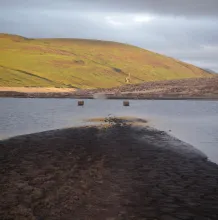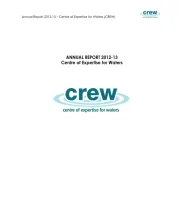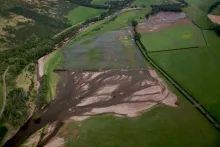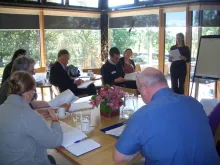CATCH II: stakeholders’ perceptions of connections for integrated catchment management
This 6 page report describes a survey which examines views and insights related to integrated catchment management. Integrated catchment management (ICM) is a popular way of managing our resources, and entails making various connections between sectors, stakeholders, policy and practitioners. Making all these connections is challenging. Part of the CATCH II project aimed to elicit views about connecting insights, processes and planning for the delivery of integrated catchment management (ICM), from a variety of stakeholders connected with planning and implementing of ICM.









